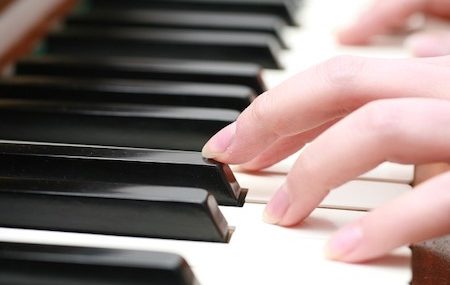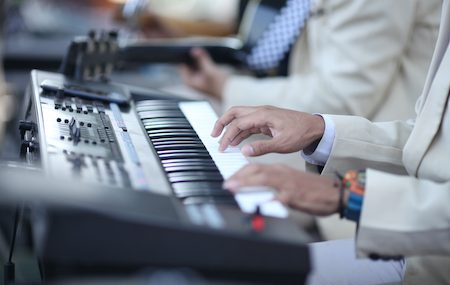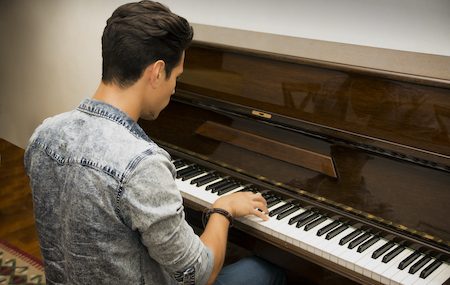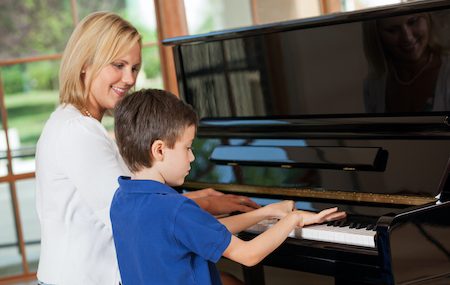What does it take to be a great pianist? Do you need natural talent? Or is it something you can work towards, perfecting your piano playing all the time?
If you’ve ever said, “I don’t have talent to play the piano,” think again. You’re not born with the ability to be a pianist. Anyone can work towards developing the talent.
How do you do that?
Practice.
Malcolm Gladwell became famous for his 10,000 rule, which simply states that in order to become successful at something, you’ll need to invest 10,000 hours at it. Perfection takes time. It’s okay to make mistakes along the way. The important part is sticking with it, and ensuring you take the time to get a little bit better every day.
To become a pianist, you have to invest in what it takes to be good at what you do. You can’t sit down and play scales or simple songs like chopsticks and expect to get better. It takes push. It takes drive. It takes improvement, a little bit each day.
And it might take a little something else. One pianist suggests it’s passion, not just for playing music, but also for the challenge of hitting your goal.
Maybe you’ve set Beethoven’s Moonlight Sonata as a goal. Or how about Chopin’s Nocturne in E-flat Major? No matter what piece you choose, the challenge of getting there might be all the goals you need.
Talent isn’t something you’re born with.
Talent comes from choosing a goal and sticking with it.
It’s not luck or genetics. To be a better pianist, it just means doing a little bit each day.











